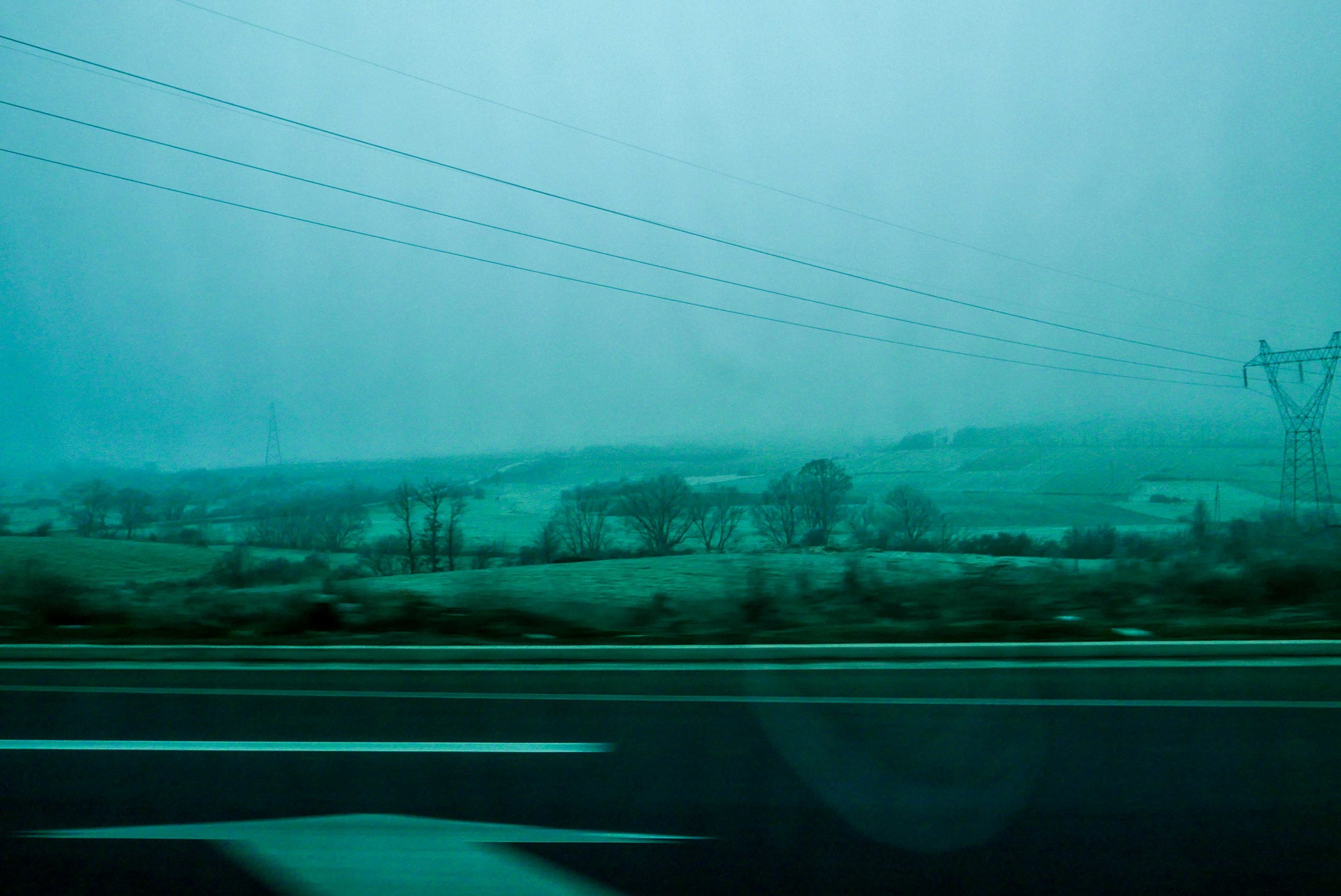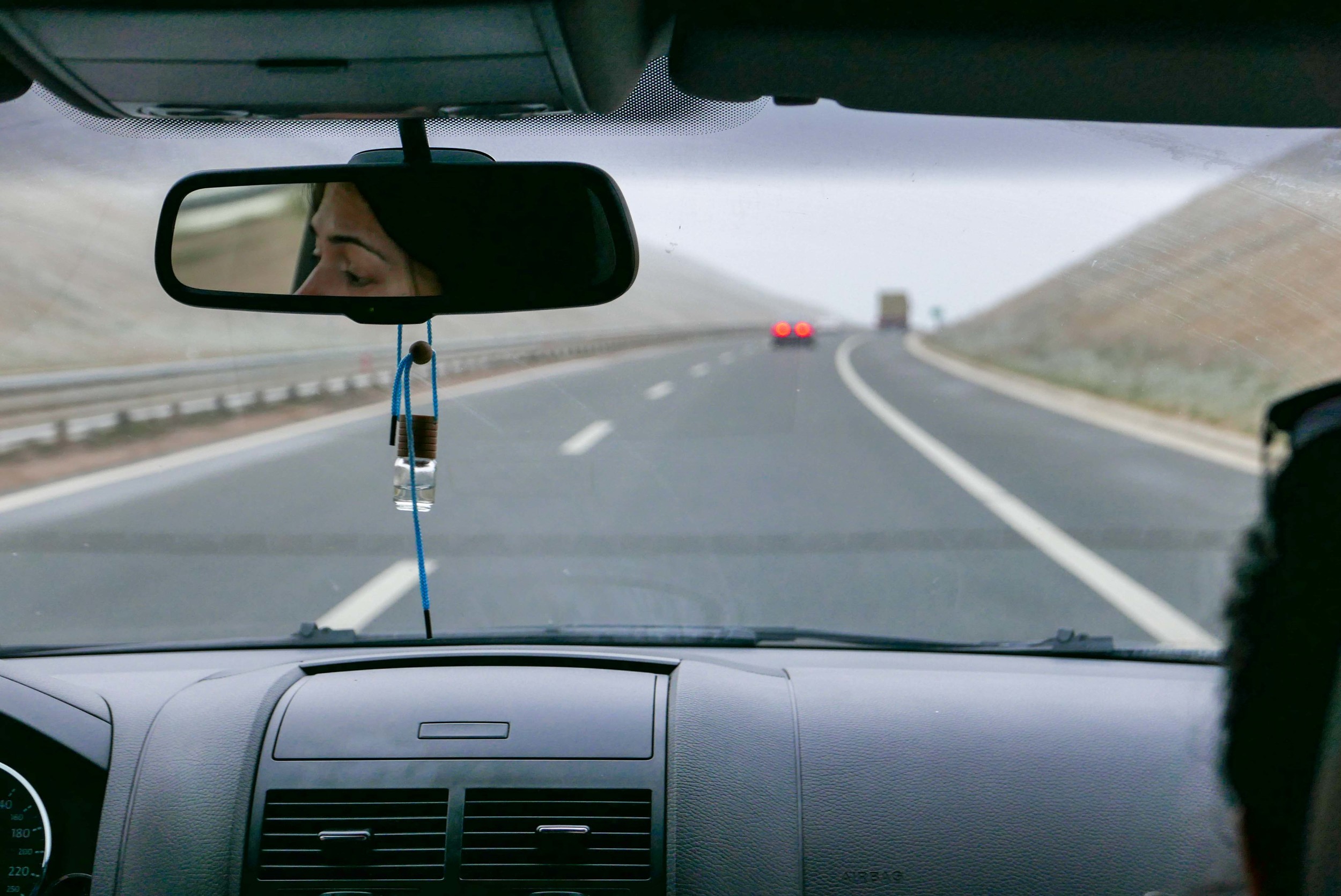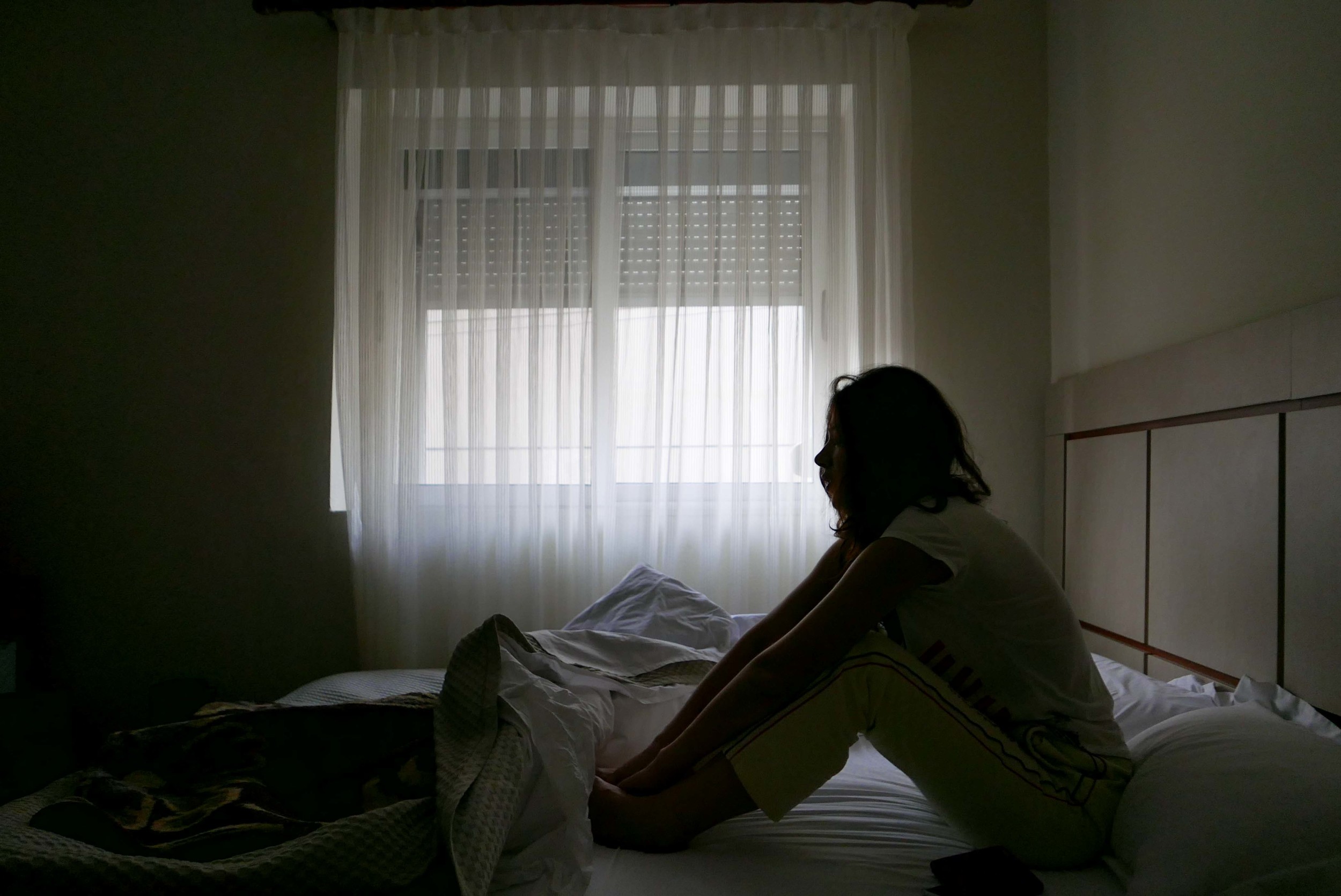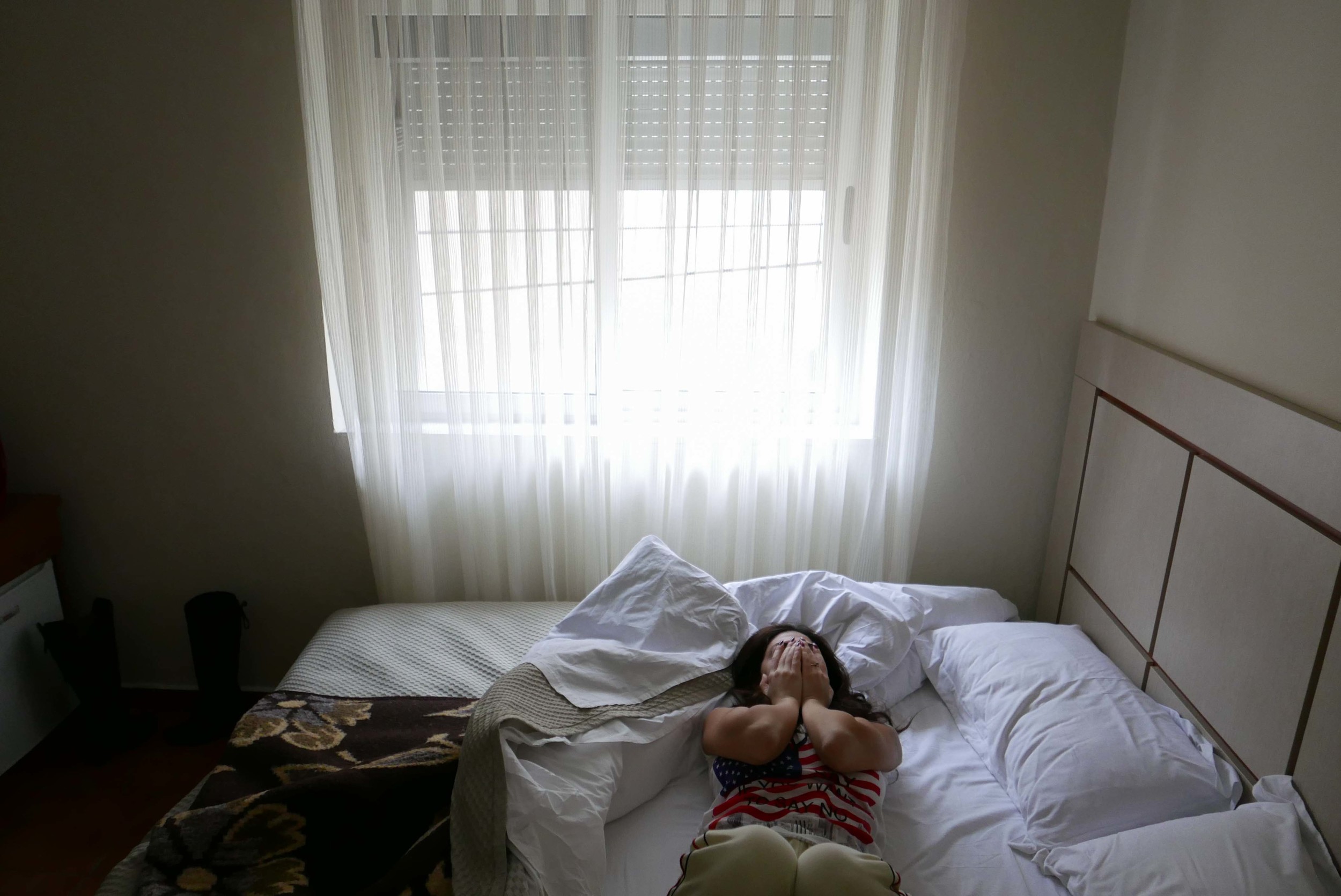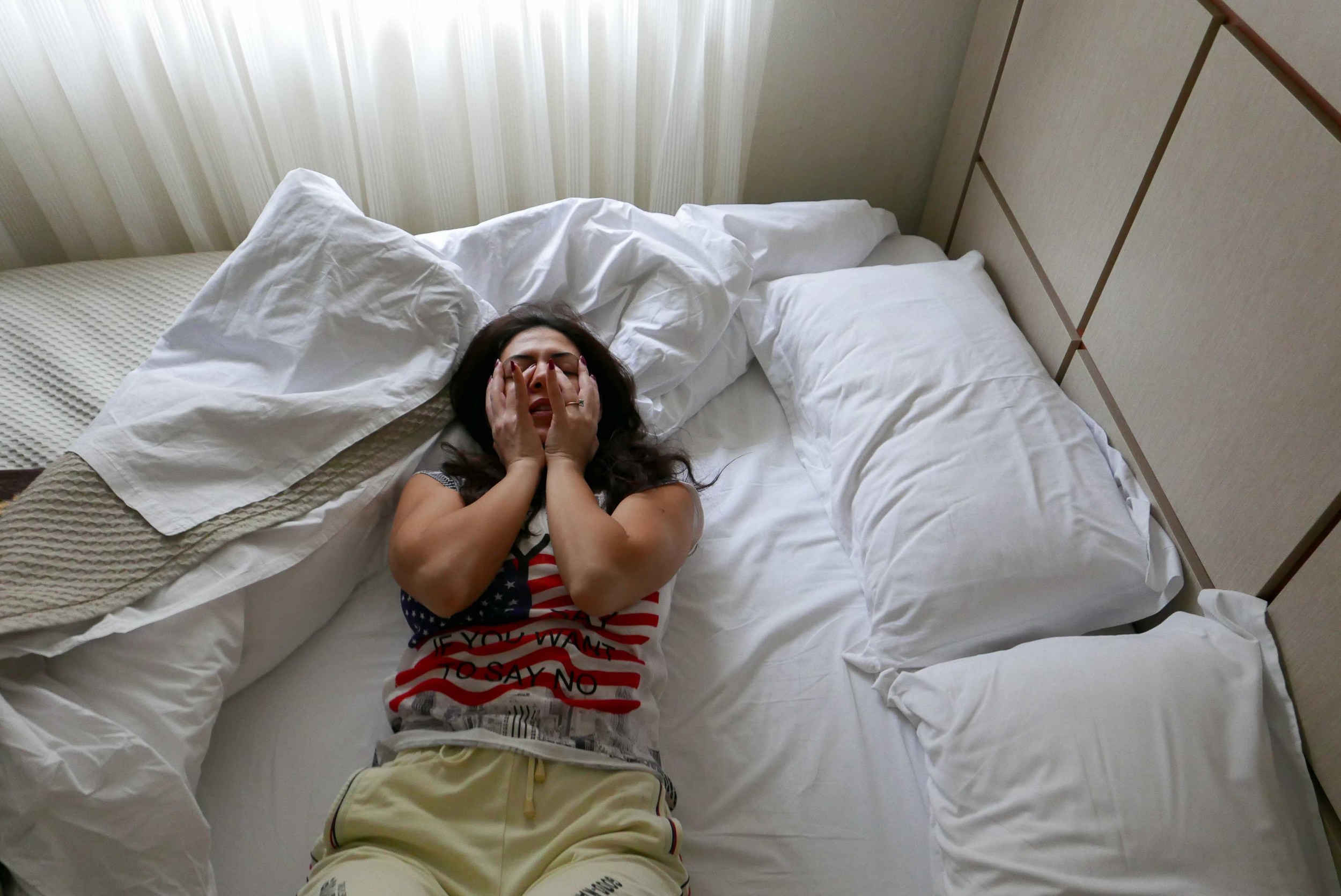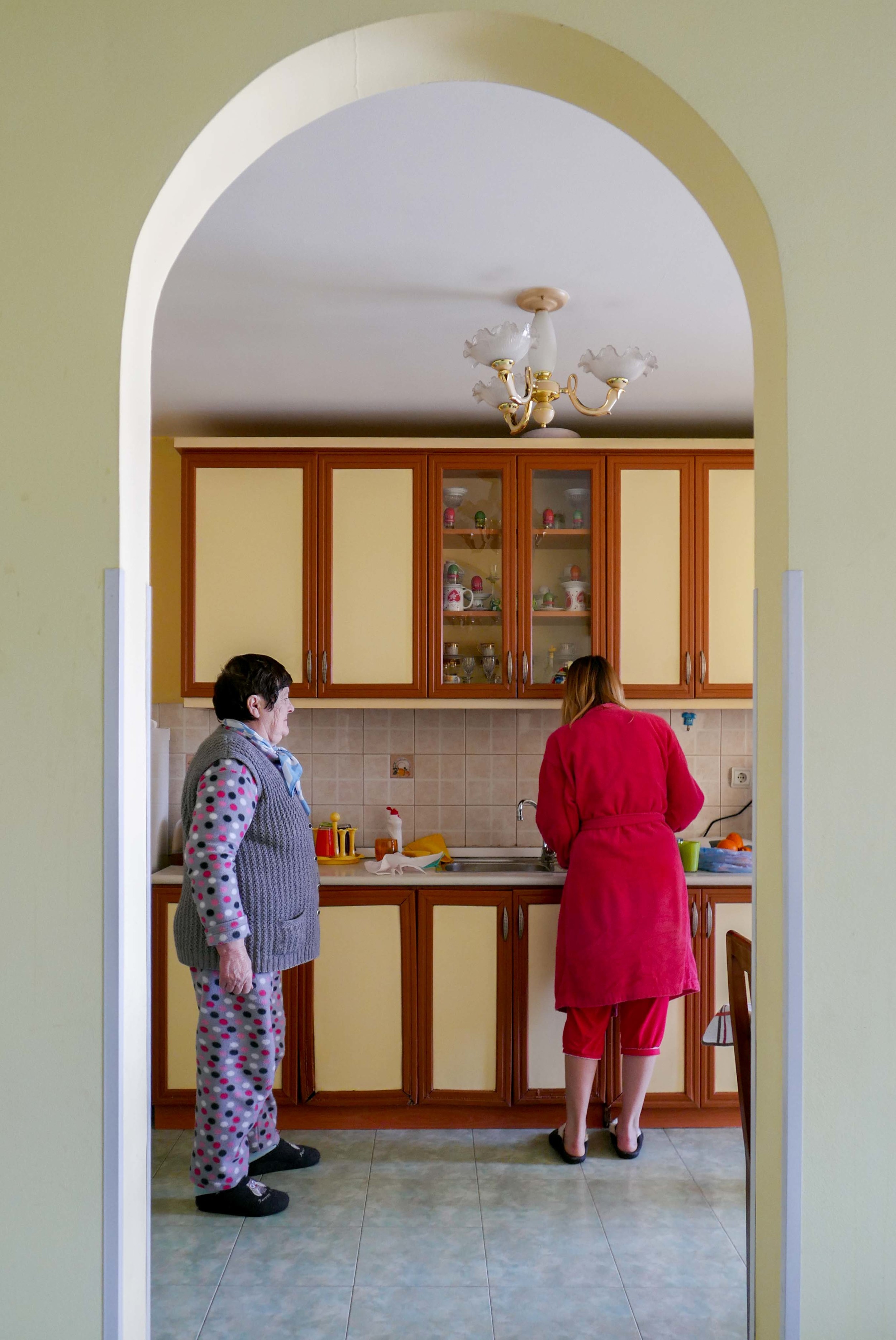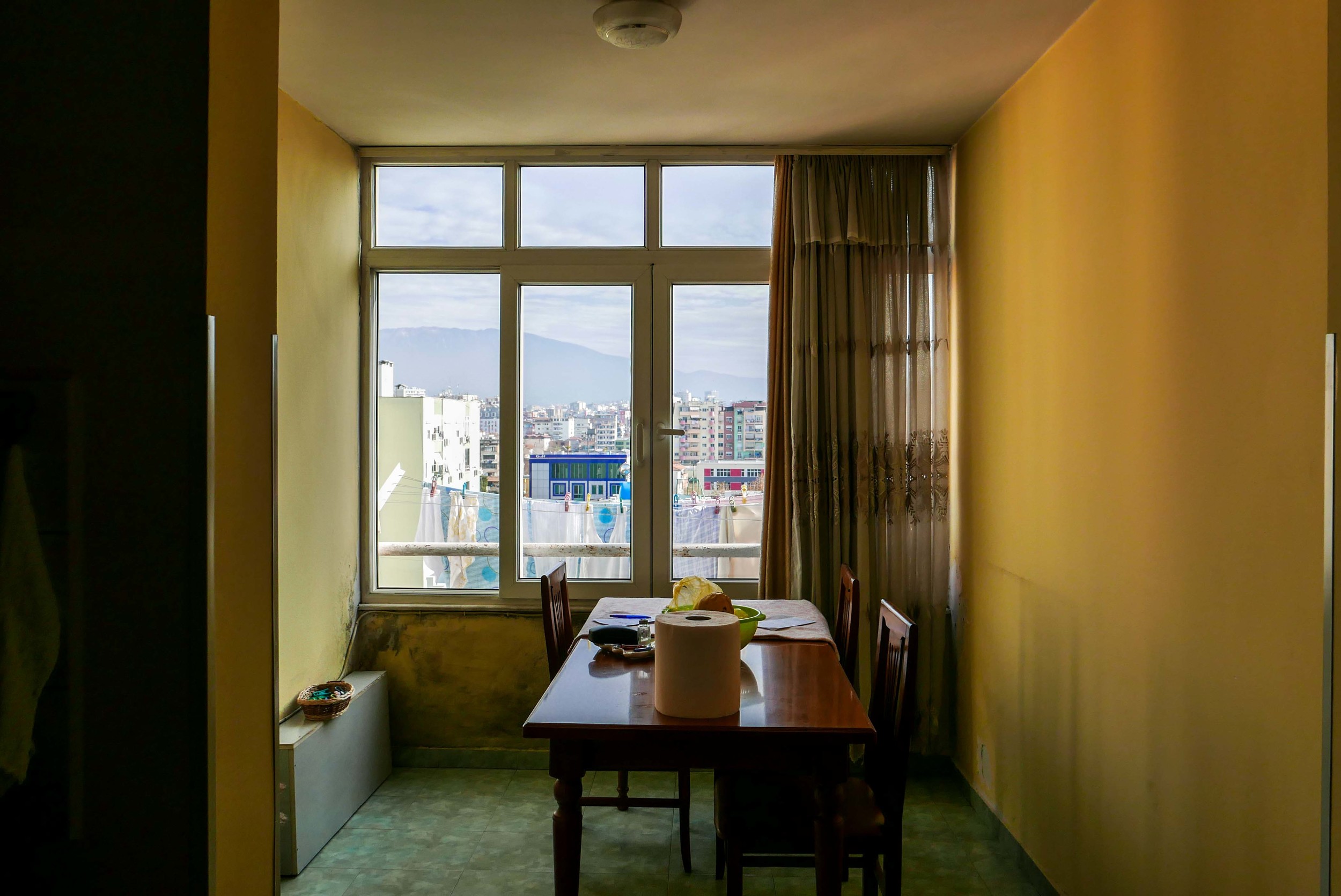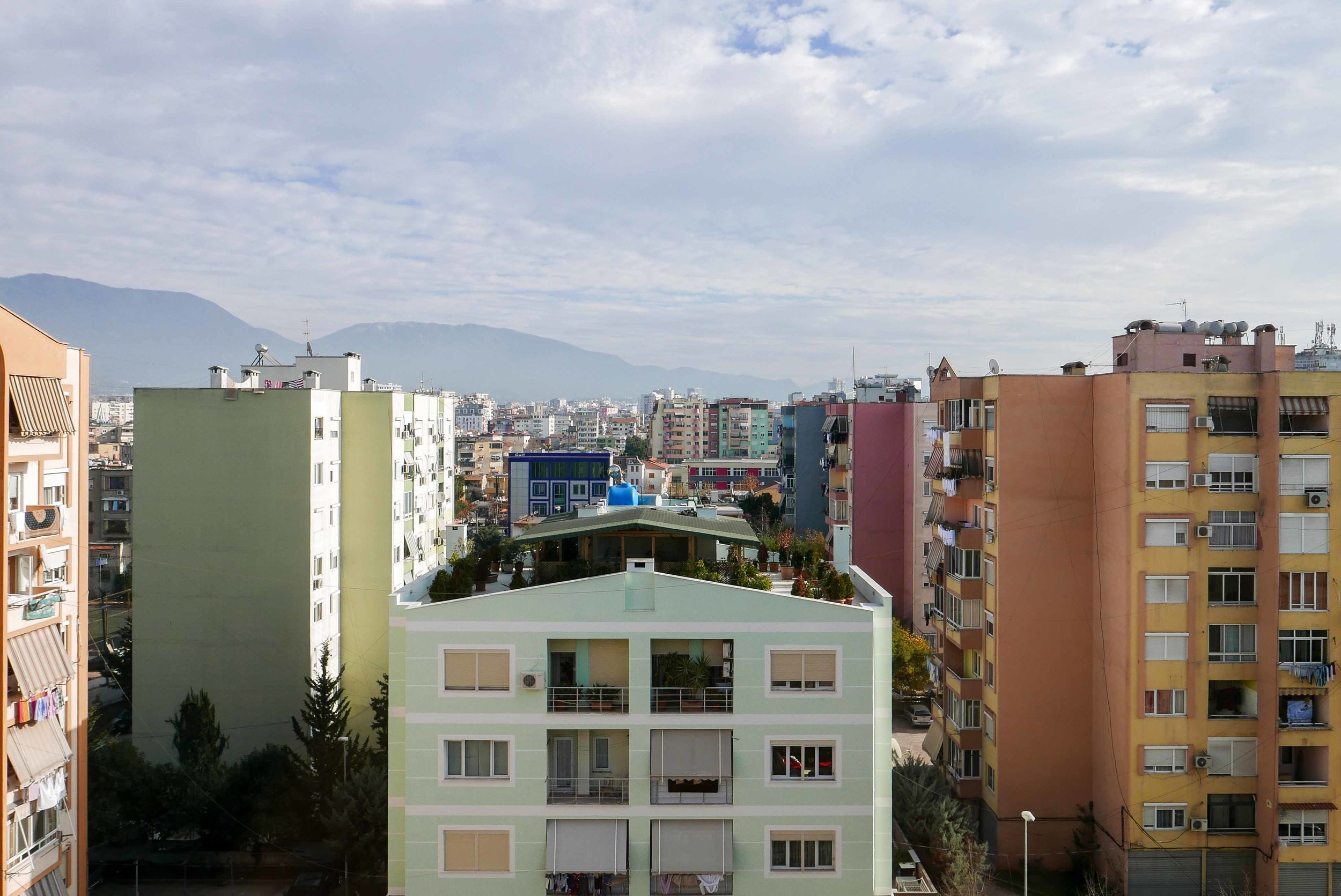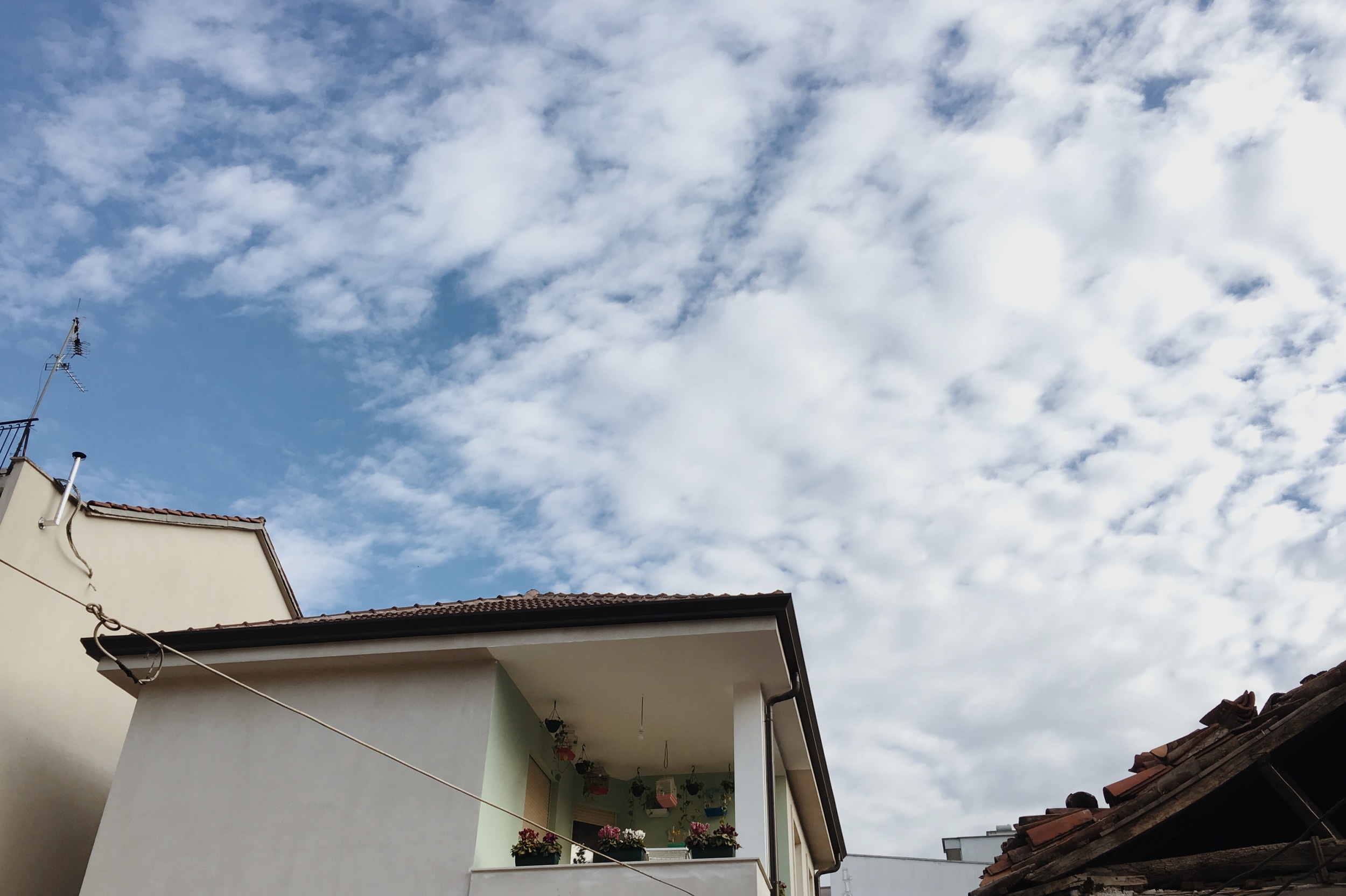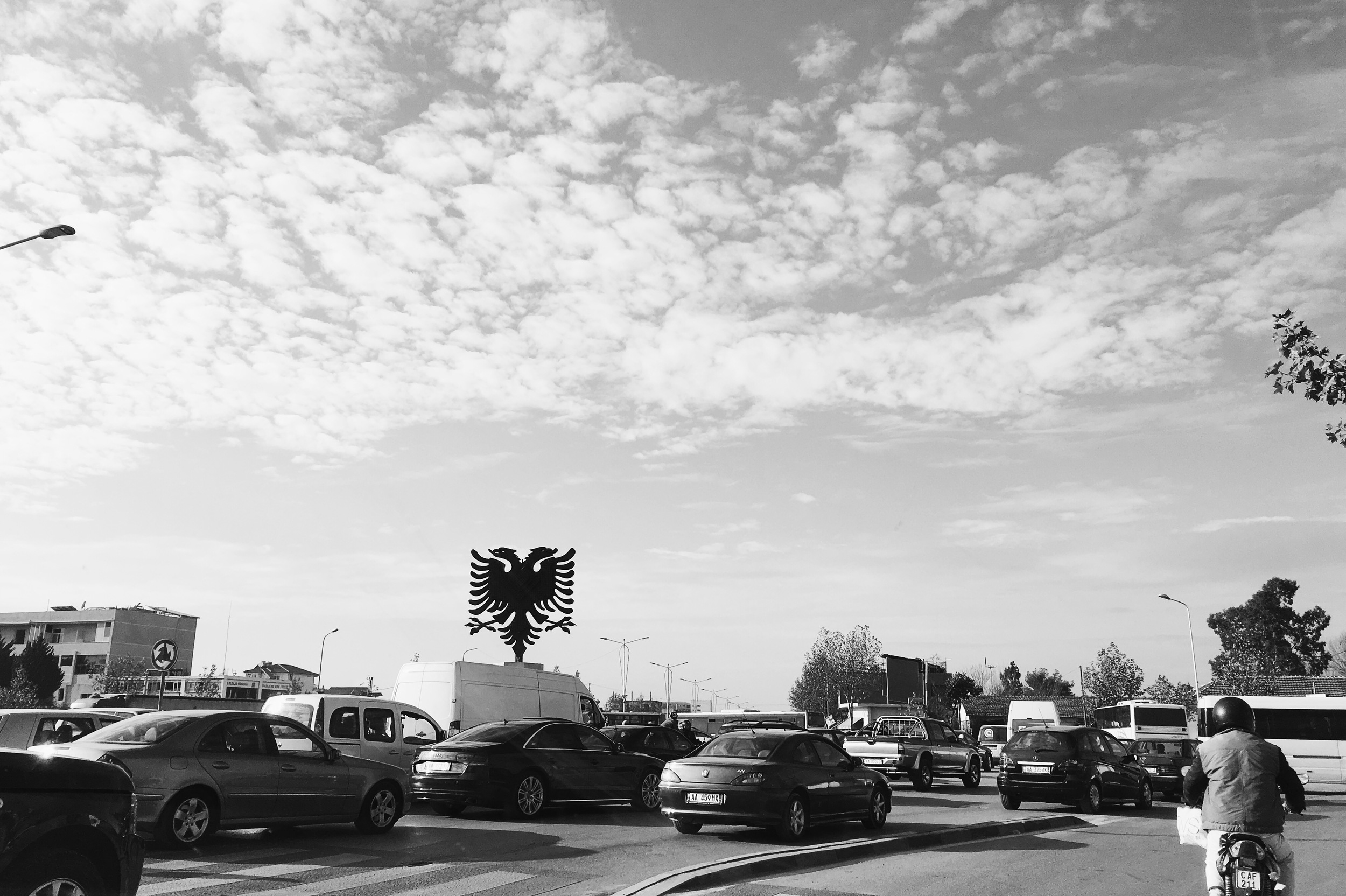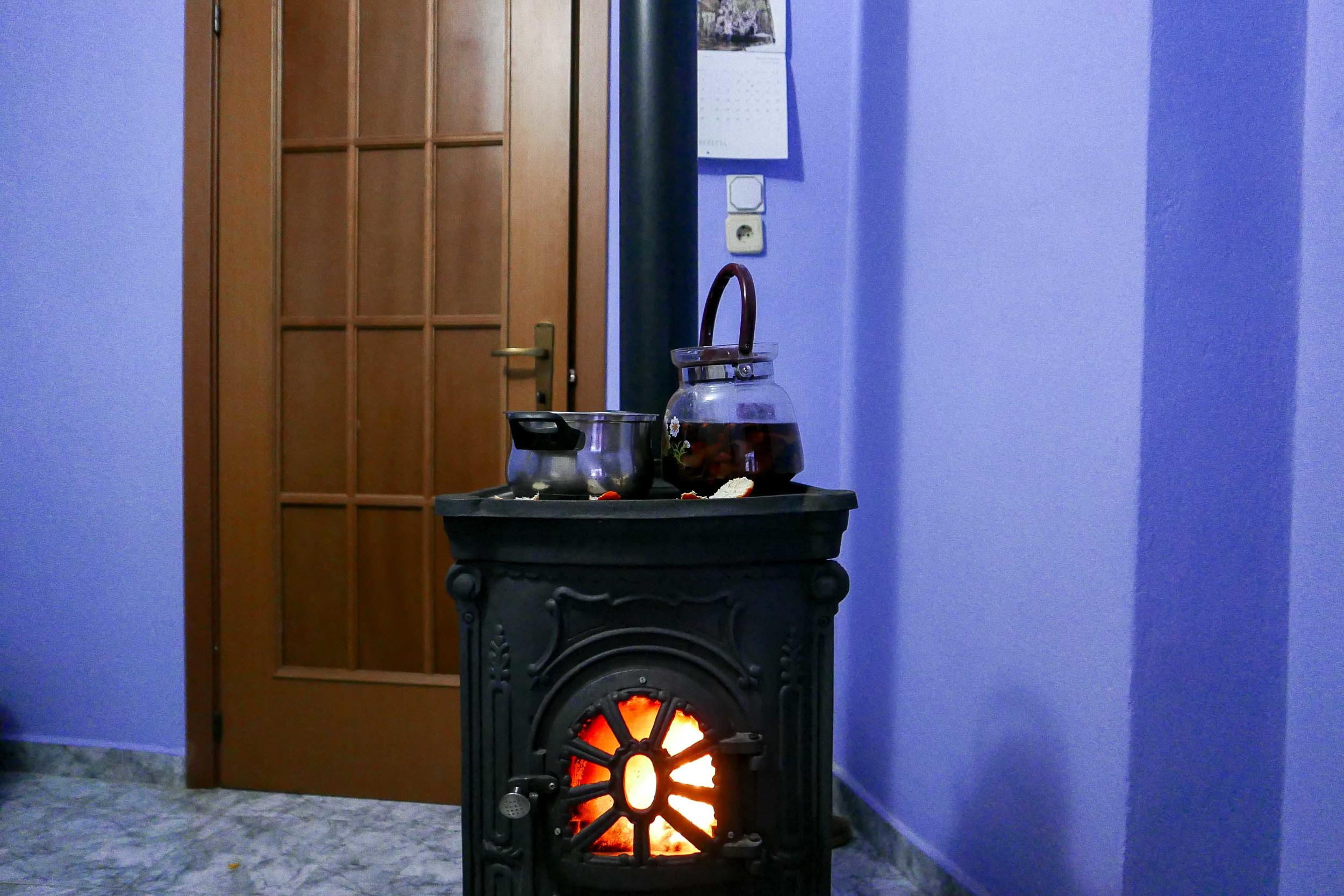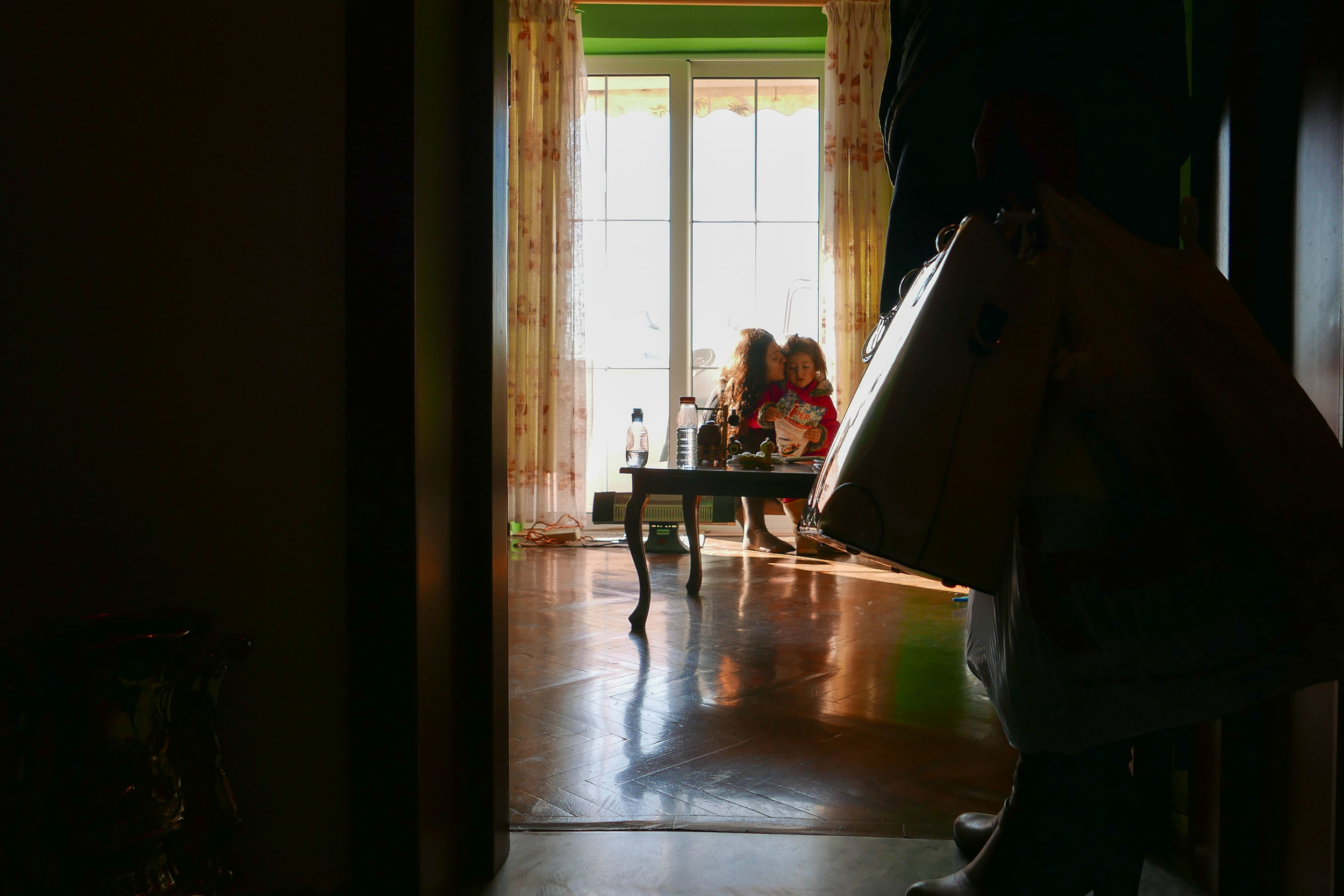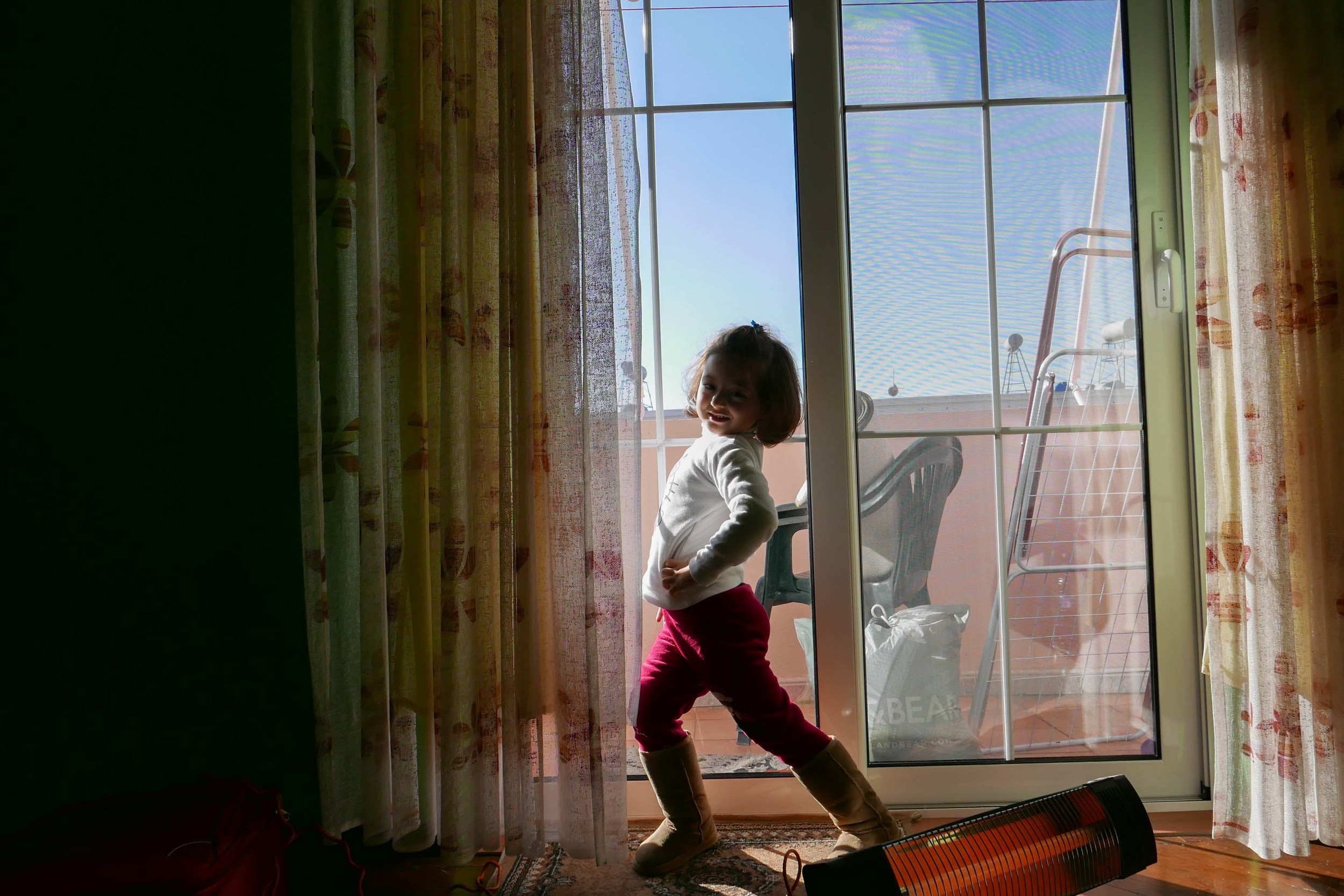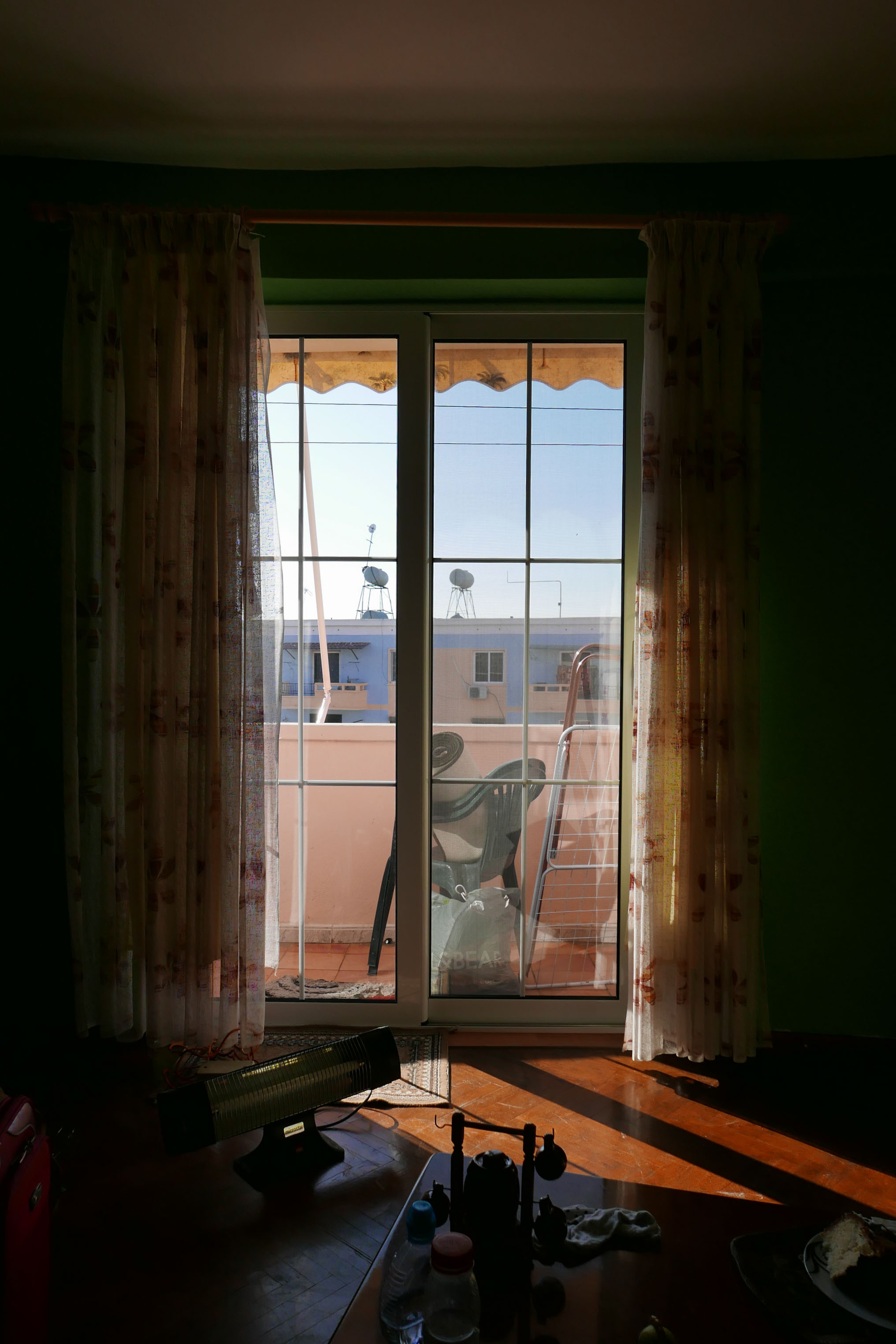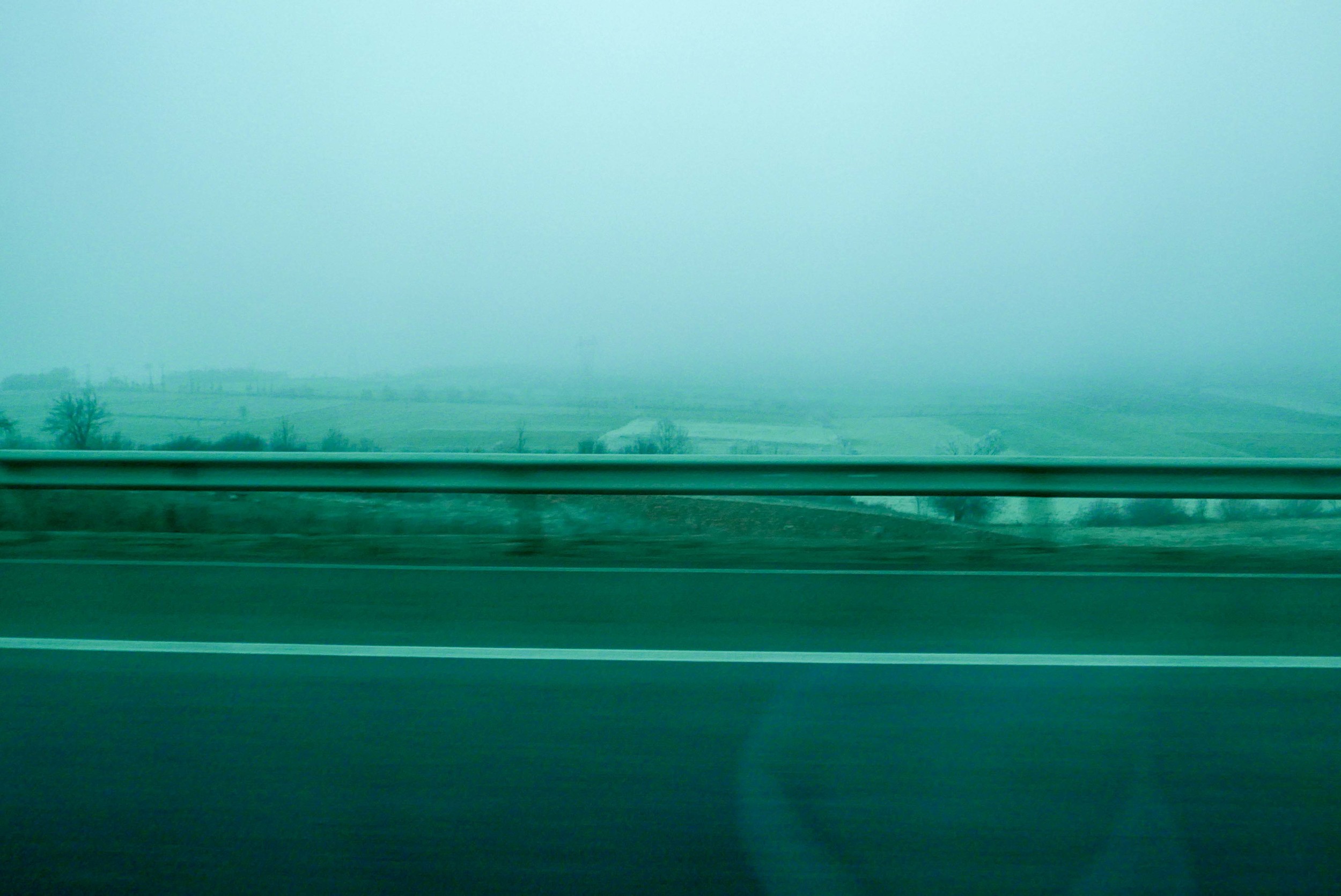Tirana & Lushnje, Albania * December 2015
I didn't read about the people in this part of the world before I came to the Balkans. That they will be your fierce friends after one handshake, invite you to their homeland after two. And so I was riding shotgun driving across the border between Kosovo and Albania to Tirana. I had met Alda only a few weeks before, but she’s a fellow Scorpio and my spider-senses told me she'd make an excellent muse, so I ran with it. I was weary about her driving skills, ignorant of where we would be staying and unsure of when we would return to Kosovo, the land of blackbirds*. For me, all of this uncertainty was particularly aberrant. I really do embrace the idea of spontaneity, but I rarely walk hand-in-hand with her; she threatens my sanctuary of feeling in control. And yet, as the night matured and Kosovo’s smog dispersed with every mile forward, I gave in and, for one chilly December weekend, I let go.
From the outset, our adventure was lively. We tackled a flat tire, found our bed & breakfast and ate the entire Adriatic Sea at Alda’s favorite seafood restaurant. We devoured crème brûlée at a bar on the tippy top of a hotel that slowly spins, offering a 360-degree view if you stay long enough, not unlike New York’s rainbow room. At midnight we maneuvered between flashy new cars sitting in traffic that seemed eager to get somewhere but were heading nowhere. (I subsequently had severe flashbacks to my high school parking lot crammed with souped-up cars blasting music, begging for attention.) We briefly crashed a traditional wedding and eventually stumbled home unprepared for the violent wind running amid Tirana's tiny, windy streets. I wore my scarf around my head as a pathetic counter-attack.
Alda was a defense attorney in Tirana, but she changed careers because, in her opinion, the judiciary was just too corrupt. She mentioned an incident involving bribery that shattered her faith in her country’s justice system. She became a bonds(wo)man before moving to Kosovo. Alda woke me up early on our first morning in Tirana. I have no idea where this woman sources her endless energy. She must have fed off of my mine and left me for dead. After a few cold fried eggs that tasted like they were prepared last night (apparently serving eggs cold is a thing here), we walked around the city, which was also entirely awake. Early-rising must be an Albanian cultural trait.
Albanians also love pet birds. Bird cages hung from almost every balcony I saw. And bird chirping made me jump in almost every apartment I entered. It was impossible to avoid Albania’s national flag—a black, double-headed eagle-like figure impressed upon a blood red background—around every corner. I asked Alda whether it was a national holiday weekend. It wasn’t. A few weeks after my Albanian adventure, I would come across an online article claiming to catalog the world’s most colorful cities. I would feel accomplished being able to cross Tirana off my list. Indeed, the city’s vibrant, saturated colors were abundant. Every apartment I entered had walls painted deep lavender, bright green, orange and pale yellow. The city itself, once under communist rule (1946-1992), bore no trace of its oppressive, architecturally-monotone past. At least on its façade.
As Alda tells it, Albania’s communist regime was not dissimilar from the oppression facing North Koreans today. She told stories, passed down from her mother and grandmother, of life in Albania when it was the People’s Socialist Republic of Albania. How religion and holidays were banned. How no one had access to telephones so everyone met at the city center every day in order to see anybody. The people used ox- and donkey-drawn carts and bicycles for transportation. The communist elite, however, lived in villas in the center of the city and drove luxury cars. In an NYTimes article dated January 18, 1991, one reporter’s impression notes “Albania seems to be caught in a time warp.” I imagine Albania fifteen years ago as a less tropical Cuba. Alda told me about a wooden, intricately painted chest her grandmother once had, where she hid her most cherished items, like honey.
In Tirana's alleyways, I spied farmers furtively selling lemons and mandarin oranges out of car trunks, and I was momentarily transported to the black markets of NYC’s Chinatown except for the clear dichotomy of goods: designer knockoffs vs. unregulated citrus. We walked alongside one of the remaining communist villas smack in the city center, now used sporadically for special events. Persimmon trees were sprinkled generously along residential roads and in the gardens of traditional homes. They bore hanging fruit, but the trees themselves were dark gray, bony and looked like discarded extras from a Tim Burton film.
We soon left Alda’s favorite city to visit her parents in a suburban town about an hour from the capital—Lushnjë. Alda warned me her parents didn’t speak English but that they would welcome me with the most open of arms. Upon arriving, we were greeted with wild forest berry tea and ushered into the warmest room of the house – painted deep purple, of course.
That night I never saw the end of food. On a simple coffee table, Alda’s mom continued to present various dishes throughout the evening including olives and cheese, Alda’s favorite chicken and rice dish (we ate the wings shamelessly with our hands), burek (a delightful, quintessentially Balkan, savory egg pastry filled with cheese) and then citrus and persimmons and walnuts and wine. Meanwhile, throughout the evening Alda’s mom nurtured the forest berry tea on the tiny wood oven in the room with dried orange peels, apple peels and plum peels.
Once I finally convinced Alda’s mom I was satiated,** we watched a Turkish series, on which they quickly caught me up to speed (short recap: two baby girls are accidentally switched at birth and their parents don’t figure this out until the girls are well into their teens and then the mother of one child and the father of the other end up falling IN LOVE, y’all!). We played with Alda’s three-year-old niece Alisa. I would later become infatuated with developments in the series, as well as with Alda’s niece. The very clear bond between Alda and Alisa gave me heart palpitations thinking of my two-year-old nephew back in NYC. And it hadn’t even been one month since I told him I’d be leaving (which I quickly followed-up with a song about how I’d be coming back).
Alda and I spent the night in her childhood room (painted lime green) before driving back to Kosovo the next morning. She assured me that Albania is even more delightful in the warmer summer months when we’d be coming back. And I can't wait.
*There are actually, incredibly THOUSANDS of blackbirds everywhere in Kosovo that fly and poop and nest in flocks. The name “Kosovo” is derived from the Serbian word “kos” which means blackbird.
**This proved almost as difficult as convincing my Italian grandmother or her sister, my great-aunt Rosie, that I was done eating. My great-aunt would actually cry when I refused a fifth piece of bread or a third helping of pasta. Alda often insists (only half-jokingly) that, because my ancestors are from the Southern boot of Italy, and because countless Albanians crossed the Adriatic to settle in Southern Italy throughout history, that I'm actually Albanian. Alda is not the first Albanian to try to convince me of my unknown Albanina roots. But it was in this moment that I actually started to wonder whether Alda's theory wasn't totally false.
